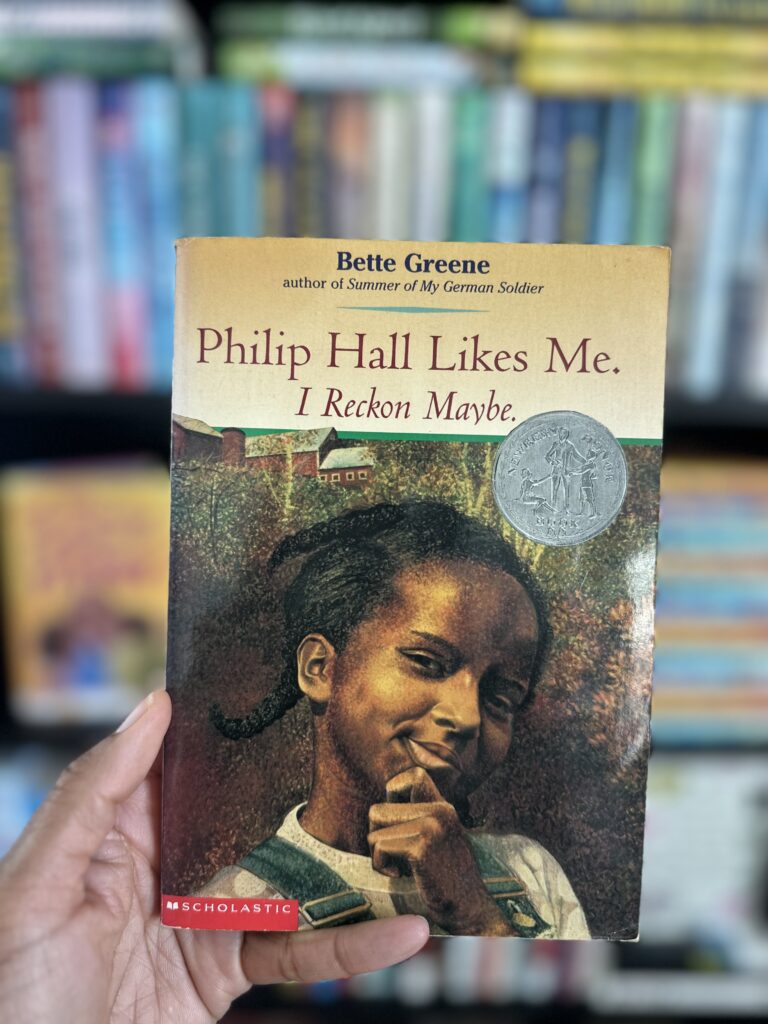On a recent virtual school visit, a kiddo asked me if I was a librarian.
“No, but my mother was,” I said. “What made you ask me that?”
“You have all those books behind you, and that made me think you’re a librarian.”
I thanked him for the compliment, but it got me thinking. I’ve been wanting to talk more about books and literacy and inspire more adults to do the same. Enter a new idea: About a Book. I’ll select one book at a time from my personal library, and tell you a little bit about it. Then I’ll invite you to share one, too…
Let me tell you about a book from my library.
Philip Hall Likes Me. I Reckon Maybe. by Bette Greene.

Kids often ask me what my favorite book was growing up. I’m not sure I had a favorite – I loved so many – but I *really* loved this book. I just loved me some Beth Lambert. Without rereading, I remember her being smart, and a fast runner and often in competition with her crush, Philip Hall.
I remember something about them starting rival clubs, engaging in various pranks that made me howl with laughter (until someone got hurt, yikes). There were walks on country roads, maybe barefoot, I’m not sure now. From her braided hair to her sharp wit, I felt I connected to Beth.
This is not the original copy I read as a kid, but if memory serves, I bought it via the Scholastic Book Club as a first year teacher around 2000. It wasn’t until years later – maybe right around 2021 or 2022 as I entered the publishing industry, that I learned more about the author. In short, although the main characters are Black, Ms. Bette Greene (now deceased) was not.
To say I was shocked is an understatement. I went on to learn that this was a pretty common occurrence. In the recent past, many books featuring main characters or stories about underrepresented groups were not written by a member of the group. This is starting to change, and there are many of us writing and publishing our own stories.
This book was published the year I was born (1974) and won a Newbery Honor the following year. It still holds a special place in my heart. Maybe one day I’ll reread it and see how it holds up.
Your turn. Tell me about a book from your library:
- What is the book?
- How did it come to you?
- Have you read it/will you?
- What else would you like to share about it?

